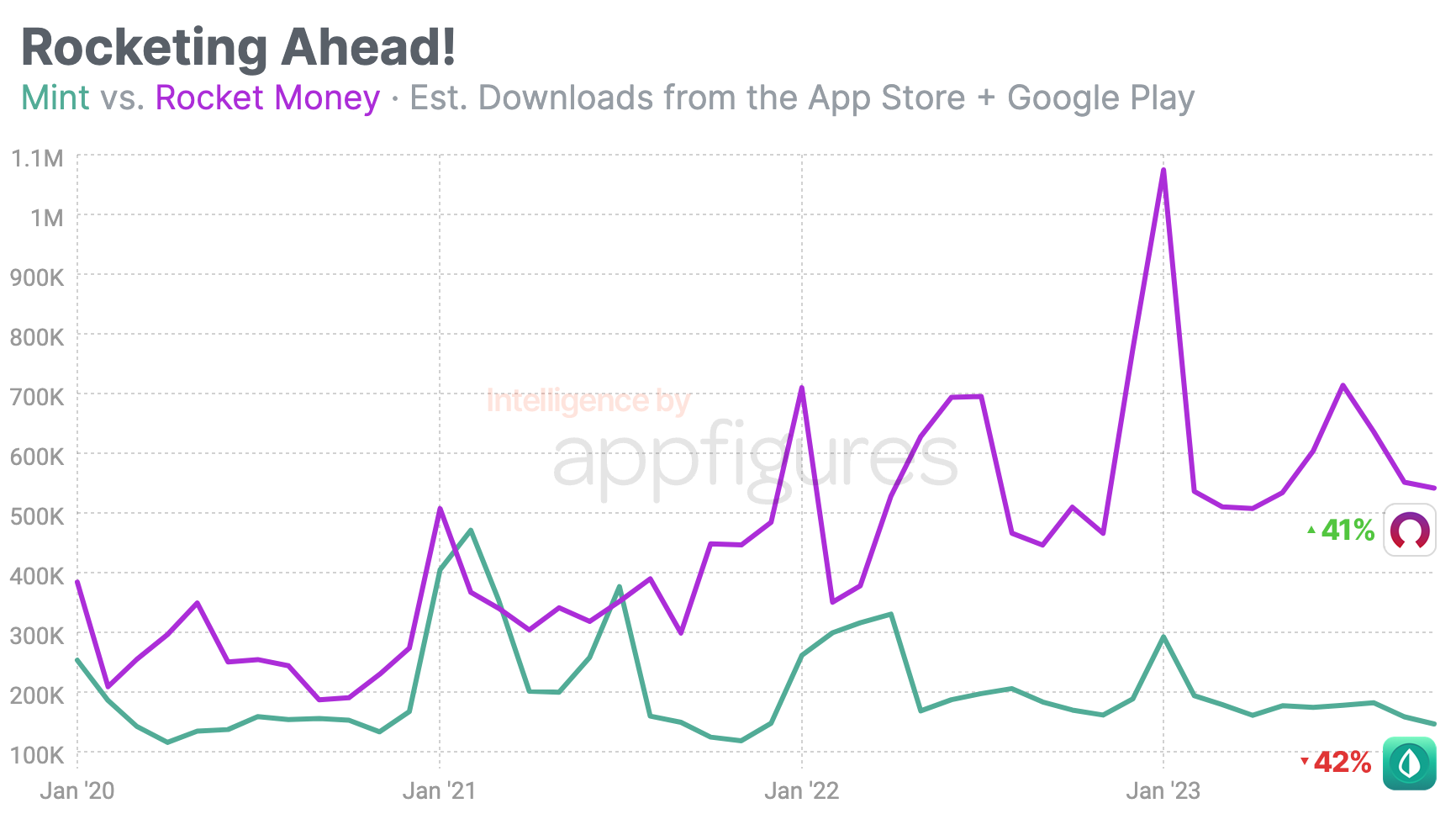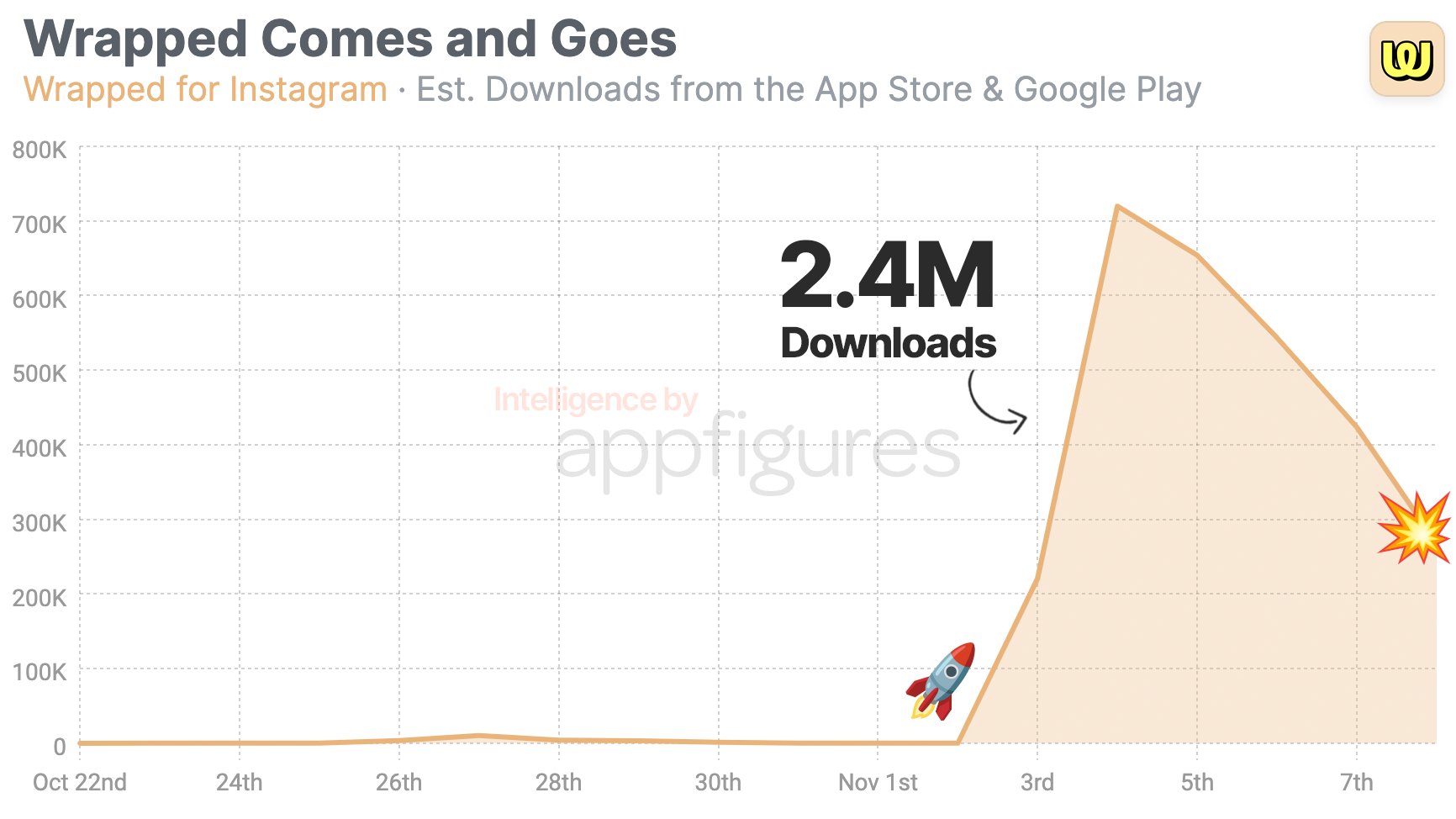Why is Intuit Killing Mint, a Crowd Favorite?
This is a single insight from This Week in Apps - Let's Check In!. Check out the full article for more insights.
Back in 2009, finance app conglomerate Intuit acquired Mint, a budget tracker that was very successful on the web and started to grow on the then brand-new iPhone.
As a user of Mint back in the day, I remember it was pretty revolutionary. It automated pulling all of your purchases and transactions from banks and credit cards and classified them for you so you can easily see where your money is going without needing a bookkeeper.
Now this is pretty standard but back then it wasn't. Mint kickstarted personal budgeting.
When Intuit bought Mint I knew its days were numbered, but to my surprise, Intuit didn't kill Mint right away. It took many of its features and brought them into its other consumer products TurboTax and Quicken, but the app was still alive.
Well, the time for Mint has come... 14 years later.
I looked at the trends and it's pretty clear why it finally happened.

Looking at Mint's downloads and comparing them with the competition, the first thing to note is that Mint isn't the most downloaded budgeting app out there, which is what I'd expect considering Intuit's size.
The most downloaded budgeting app is Rocket Money, which saw 2.4x more downloads than Mint this year. In more absolute terms, our estimates show Mint got 1.9M downloads between January and October while Rocket Money saw 4.6M downloads.
And if we zoom in on October, the gap rose to 3.6x.
In fact, since January of 2020, Mint's monthly downloads have dropped by a scary 42%. And guess what, Rocket Money's monthly downloads rose a whopping 41% at the same time.
So, Intuit is losing the downloads (aka growth) race.
But that's not all. Downloads are good, but revenue is better.

So far in 2023, Mint earned a total of $1.6M of net revenue, which nets out to $0.86 per user. And this is all net, so it's what Intuit gets to keep after Apple and Google take their fees. And it's worth noting that the majority of this revenue, a little over 96%, is coming from the App Store. Google Play accounted for just 3.8%.
Rocket Money plays at a different level. Our estimates show Rocket Money earning $8.7M, which nets out to $1.40 per user. And again, this is net, so we don't have to worry about Apple/Google fees here.
So, Intuit is losing the monetization race.
There is some good news here. Mint's monthly mobile revenue grew 26% since the beginning of the year while Rockey money's dropped a bit. Obviously though, not a good enough reason to keep pushing.
App Intelligence for Everyone!
The insights in this report come right out of our App Intelligence platform, which offers access to download and revenue estimates, installed SDKs, and more! Learn more about the tools or schedule a demo with our team to get started.
Are you a Journalist? You can get access to our app and market intelligence for free through the Appfigures for Journalists program. Contact us for more details.
All figures included in this report are estimated. Unless specified otherwise, estimated revenue is always net, meaning it's the amount the developer earned after Apple and Google took their fee.

